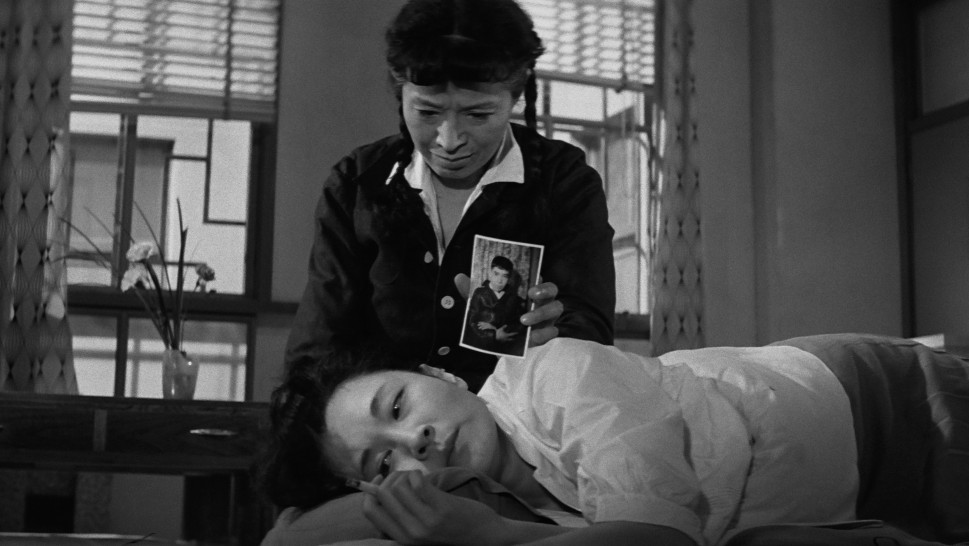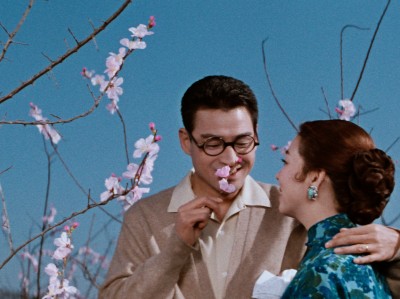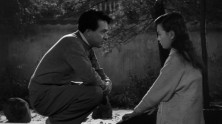
Girls of the Night
(Onna bakari no yoru)
With Chisako Hara, Akemi Kita, Kyoko Kagawa.
Japan, 1961, DCP, black & white, 93 min.
Japanese with English subtitles.
DCP source: Janus Films
Girls of the Night could be taken as a pointed response, or perhaps sequel, to Street of Shame, the final feature by Kenji Mizoguchi, the director with whom Tanaka, as an actress, is most closely associated. While Mizoguchi’s film offered a harsh indictment of state-regulated prostitution that was claimed by many to have inspired Japan’s 1956 Anti-Prostitution Law, it also extended the sexual aestheticization of female suffering for which the filmmaker is well known and sometimes criticized. In Tanaka’s hands, however, the same subject of exploited women is approached from a radically different angle, looking now at the effects of the new law that closed down the legalized brothels while also creating a nefarious sex-trafficking underworld. Focused on a center for the rehabilitation of sex workers, Girls of the Night follows the travails of one young woman who leaves the safe house only to struggle bitterly to shed her past. Adopting the perspective of the young woman, effectively played by Hisako Hara, Tanaka reveals the omnipresent and insidious prejudice against “fallen women,” most notably from other women. Especially impressive is Tanaka’s resistance of any easy narrative resolution, making palpable the harsh reality of women living in a society ruled by unyielding and hypocritical mores.






















